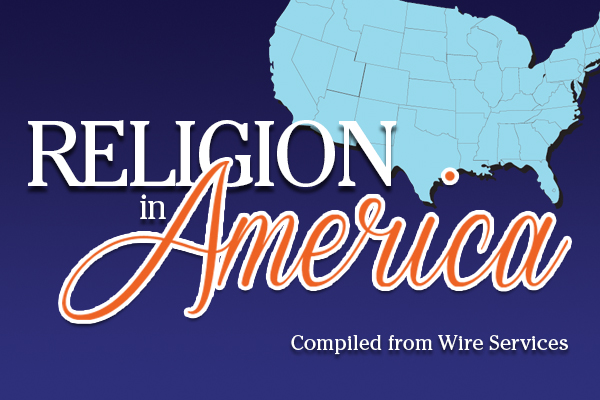Pastors and churches seem safe from forced conformity despite the 5–4 ruling by the U.S. Supreme Court to legalize same-sex “marriage,” but religious institutions may have a more difficult future. Christian business people also face uncertainties about their rights going forward.
The long-anticipated decision in Obergefell v. Hodges was announced June 26. The Court ruled: “The Fourteenth Amendment requires a state to license a marriage between two people of the same sex and to recognize a marriage between two people of the same sex when their marriage was lawfully licensed and performed out-of-state.”
In one of the dissenting opinions, Chief Justice John Roberts said the Constitution was left out of the decision.
“Whether same-sex ‘marriage’ is a good idea should be of no concern to us,” he said. “Under the Constitution, judges have power to say what the law is, not what it should be.”
But Justice Anthony Kennedy said in the majority opinion, “The limitation of marriage to opposite-sex couples may long have seemed natural and just, but its inconsistency with the central meaning of the fundamental right to marry now is manifest.”
Gov. Robert Bentley said, “I agree with 81 percent of the people of Alabama who believe that marriage is between one man and one woman. … But we will always obey the law.”
Alabama Attorney General Luther Strange said that while the decision may be the “law of the land,” he suspects “the focus will now turn to the exercise of one’s religious liberty.”
“I will continue to defend the religious liberties of Alabamians and ensure that people and businesses honoring their religious beliefs are protected,” Strange wrote in a statement.
Russell Moore, president of the Ethics & Religious Liberty Commission (ERLC), agreed that religious liberty “is the next front in this skirmish in American life.”
“I don’t think this will result in pastors being forced to perform same-sex ‘marriages,’ but I think there will be more religious liberty questions. … It is going to take legislative protection of basic first amendment rights … and people of faith articulating why we believe what we believe,” he said.
D’Linell Finley — pastor of Southlawn Baptist Church, Montgomery, and director of Samford University’s Ministry Training Institute in Tuskegee — also expressed concern about religious liberty.
‘Respect our rights’ too
“In this diverse society where our liberties give us the right to make our choices, we want those groups to respect our rights to be people of faith with moral standards,” he said. “We shouldn’t be forced to abandon those standards or risk being called intolerant.
“I would encourage churches to be very firm in what they believe,” Finley added. “The Church still has the high ground. We need to … let people know with clarity where we stand and that we hold fast to our faith just as they hold fast to their lifestyle.”
It comes down to how we are going to act as Christians, he said. “The Church is bigger than any immorality that society can throw at it. … Before this decision came down, sin was already around us. As believers we have coped with it … since we have been saved.
“If God allowed us to overcome sin in the past and not allow it to overwhelm us, then I think He will allow us to do the same thing despite a Supreme Court ruling,” Finley said. “I would suggest believers continue to be believers wherever they are working … just as they have already been doing by managing to get along by meeting their responsibilities and not allowing the beliefs of other people to get in their head.”
However, Moore said believers will need to understand the difference between being insulted and being persecuted.
Church leaders will need to instruct their congregations on what it means to live according to conscience, he said.
Moore and Finley both said religious institutions beyond the local church — Christian colleges and universities specifically — will likely face the most difficulties.
Alabama Baptist State Convention President Travis Coleman Jr. and Rick Lance, executive director of the Alabama Baptist State Board of Missions, also said the Court’s decision “has far-reaching moral and legal implications, even beyond the stated intent of the ruling itself.”
“We as Alabama Baptists need to remain faithful to our calling to be the people of God, even in a culture that is becoming increasingly adverse to the biblical views of marriage and family,” they wrote in a joint statement. “Our mission has not changed. Our beliefs have not changed. Our calling to be the people of God has not changed. Now more than ever, we must be the voice of authentic biblical Christianity.”
Coleman added, “Let us be reminded that though same-sex ‘marriage’ now becomes legal, it does not make it right. God’s Word still remains true and is the guide for His children and His Church. Let us love and respect others who differ with us on this issue but let us also remain true to our convictions that biblical marriage is between one man and one woman. Please pray for our leaders as they sort out all the implications of this ruling concerning religious liberty and the Church. ”
The 14th Amendment’s Equal Protection Clause
No State shall make or enforce any law which shall abridge the privileges or immunities of citizens of the United States; nor shall any State deprive any person of life, liberty or property, without due process of law; nor deny to any person within its jurisdiction the equal protection of the laws.






Share with others: